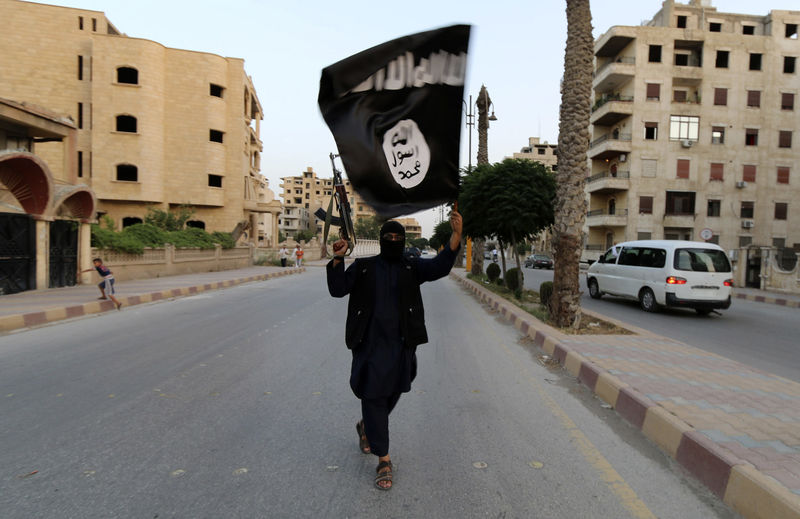By Warren Strobel, Jonathan Landay and Phil Stewart
WASHINGTON (Reuters) - The United States is accelerating efforts to help Turkey clamp down on its border with Syria, senior U.S. officials said, and for the first time will offer technologies to Ankara to help it secure the frontier.
Washington and Ankara have been discussing for months how to seal the last piece of unsecured border, a 98-kilometer-long (60 mile-long) stretch that has served as a thruway for Islamic State fighters, black-market goods and war materiel.
Islamic State controls the Syrian side of the border, and the effort to secure it assumed new urgency after November's deadly Paris attacks. Some of the Paris attackers used or attempted to use the Syria-Turkey border to travel between Islamic State-held territory and Europe, the officials said.
U.S. Vice President Joe Biden is due to arrive in Turkey on Thursday and will meet with President Tayyip Erdogan and Prime Minister Ahmet Davutoglu to discuss the fight against Islamic State.
Biden's visit to Istanbul is the latest in a string of high-level visits to the NATO ally. U.S. Homeland Security Secretary Jeh Johnson in February will lead an inter-agency delegation and offer the Turkish government a menu of specific border-control technologies, the U.S. officials told Reuters.
Aerostat surveillance balloons and anti-tunneling technology are on the U.S. menu of equipment likely on offer, and the U.S. is prepared to share methods for detecting the material used in improvised explosive devices, the officials said.
"We like what we're seeing in terms of their actions and we want to work with them to tighten the screws a little bit further," a senior administration official said of Turkey. He and others requested anonymity to discuss diplomatic negotiations.
Turkish steps to secure the border include the deployment of 25,000 more regular army troops and the installation of concrete barriers and fences.
Still, U.S. Defense Secretary Ash Carter told Congress last month that "Turkey must do more to control its often porous border" with Syria.
During a visit by Joint Chiefs of Staff chairman Gen. Joseph Dunford two weeks ago, Turkey proposed that the United States train a group of Sunni Arabs to help secure the area on the Syrian side of the border, U.S. officials said.
The officials said that the United States wants to know more about the proposed fighters before agreeing to support them.
U.S.-Turkish discussions have been complicated by competing priorities. Turkey is focussed on containing Kurdish separatists and the United States has the stated aim of destroying Islamic State militants who control areas of Syria and Iraq.
"We can try to move ISIL up in sort of the priority ranking but when somebody perceives something as a true existential threat, it's difficult to argue with that," a senior U.S. defense official told Reuters, using an alternate acronym for Islamic State.
Johnson's trip is an effort to respond to Turkish complaints that Washington has not been specific about steps it wants Turkey to take, the U.S. officials said.
"We have made a list, a much more specific list," the senior administration official said. "And that will be filtered through ... their view of the problem and what's feasible, what they think they can do."
The Homeland Security secretary's visit culminates lower-level talks that have been going on since August.
Those talks "gained new urgency" after Islamic State-directed shootings and bombings that killed 130 people in Paris on Nov. 13, a second senior administration official said.
"The fact that they came up through Syria, through the remaining border gap is something that has gained everyone's attention," this official said, declining to be more specific.
For its part, Turkey said it detained one of the Paris suicide bombers, Brahim Abdeslam, at its border in January 2015 and deported him to Belgium - where he was set free.
